The process and complications of Political Leaks.
Leak inquiries are nothing new and many of them have been highlighted in the press over the years. The reason leaks happen vary with situation and whether they are deliberate or not is arguable. However the complications and consequences of leaks are devastating to lives, irrelevant to which side of the leak an individual finds themselves.
This is an investigative article examining the process of political leaks and the complications they bring for government officials and the public alike.
Investigating the process of political Leaks
In the UK, the main forum for journalists to scrutinise the government has been through twice-daily, non-televised briefings, usually given by the prime minister’s press secretary, James Slack. The lobby as this system is known, has long been controversial. Its critics claim that it encourages secrecy and creates a 'cosy' relationship between political journalists and the political establishment. Its supporters claim it provides an unrivalled channel for scrutinising the government’s activities.
However, recently, Boris Johnson ordered for the location of the daily briefings to be moved from the Lobby room at the House of Commons, to Downing street and the briefings to be televised. Although this seems innocent enough, the move in location has disrupted the work of lobby journalists who need to be in and around parliament during the afternoon in order to meet newspaper and broadcast deadlines. Telegraph Chief correspondent expressed his concerns of the possibility that forcing journalists to access the Downing Street gate will allow the Government, or any future administration, “to refuse access to journalists it may not approve of”. This, he said, would be “damaging to the freedom of the press". This comes after a huge walkout was staged among journalists after they were segregated and told only specific journalists, with invites would be able to attend. Number 10 sources have told some journalists the meeting was a “selected briefing for specialist senior journalists."
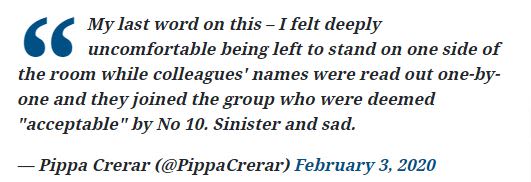
"On the face of it opening up these briefings should be welcomed, having given the appearance of transparency, while in fact concealing as much as it revealed – if the frequent criticism of misleading information having been given about ventilators, care homes, PPE, testing and test and trace are any indication."
As mentioned, the UK has daily briefings, twice daily, this means that there is certain room for error and misinformation to be leaked outside of the political establishment. In this case, the issue lies with the journalist that prematurely revealed information that was yet to be confirmed.
All governments, local and national, have always briefed the media and sometimes that involves talking to a journalist who will run the story before an official announcement is made. In the House of Commons, the Speaker takes a very dim view of ministers who announce new policies to the media as opposed to coming to the Chamber of the House of Commons to tell MP's first. "
There are however other kinds of leaks where people working inside government or public bodies decide they need to get information out which those in power do not want to be revealed. In response to some questions given to Hilary Benn, he stated that there "is a balance to be struck between harming the national interest - for example; security or defence - and ensuring that high standards are upheld and that parliament and the media are able to hold the government to account. "
If a leak of information is in the publics interest but potentially tarnishes the image of government officials, it should be released. As the UK is a constitutional monarchy, and all political decisions are taken by the government and parliament, voted in power through the general election; the people need to be aware of what is happening within the government they voted for.
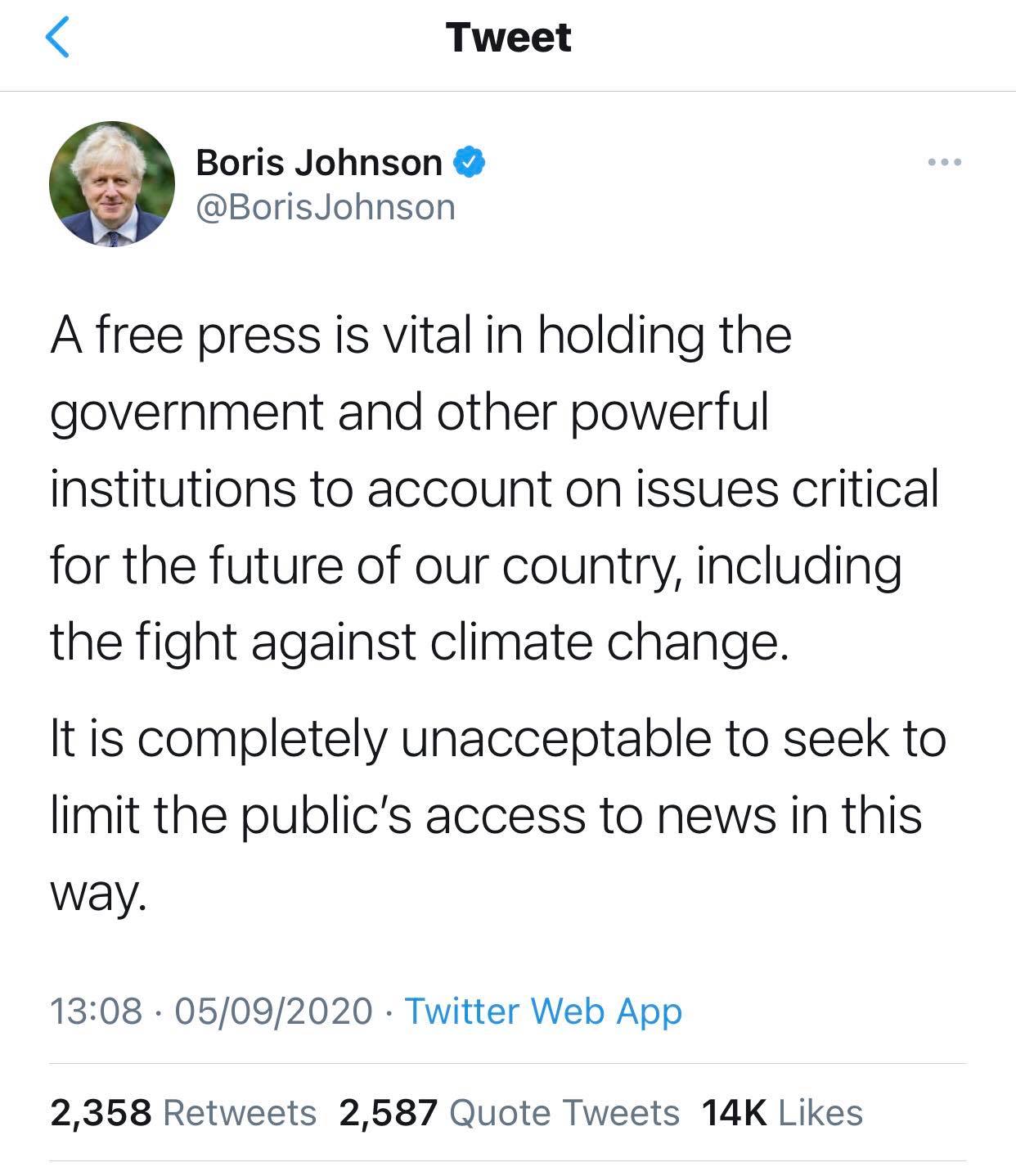
How do leaks Happen
- Journalist will run story before official announcement is made.
- People working inside government decide they need to get information out which those in power do not want to be revealed.
- Other organisations bring things to light which we need to know about; in the publics interest.
Many times have articles referenced to 'a source' or that a reporter 'understands' that someone holds a certain point of view. This could be a sign that they've been briefed or sent documents by the person in question (or their staff.) This is always done in a sneaky, deniable way but to put it bluntly, it was leaked.
The conversation could take place in a bar or as a quick passing by through the hallways of Westminster. The same as the ordinary individual swapping gossip with colleagues. These days its just as likely to be on a Whatsapp Chat. The bonus of this for the journalist is they are the first with the story. Without these leaks, all of the information the public would receive would be directly through those in power. "How does this benefit the politician though?" Some may wonder, well they might want to build a relationship with the journalist, a you scratch my back, ill scratch yours situation. Or, they may disagree with a policy and feel revealing it would spark a debate and possibly change public opinion. It could be pure politics - present themselves in a good light, or it could come from genuine concern that an injustice was being done.
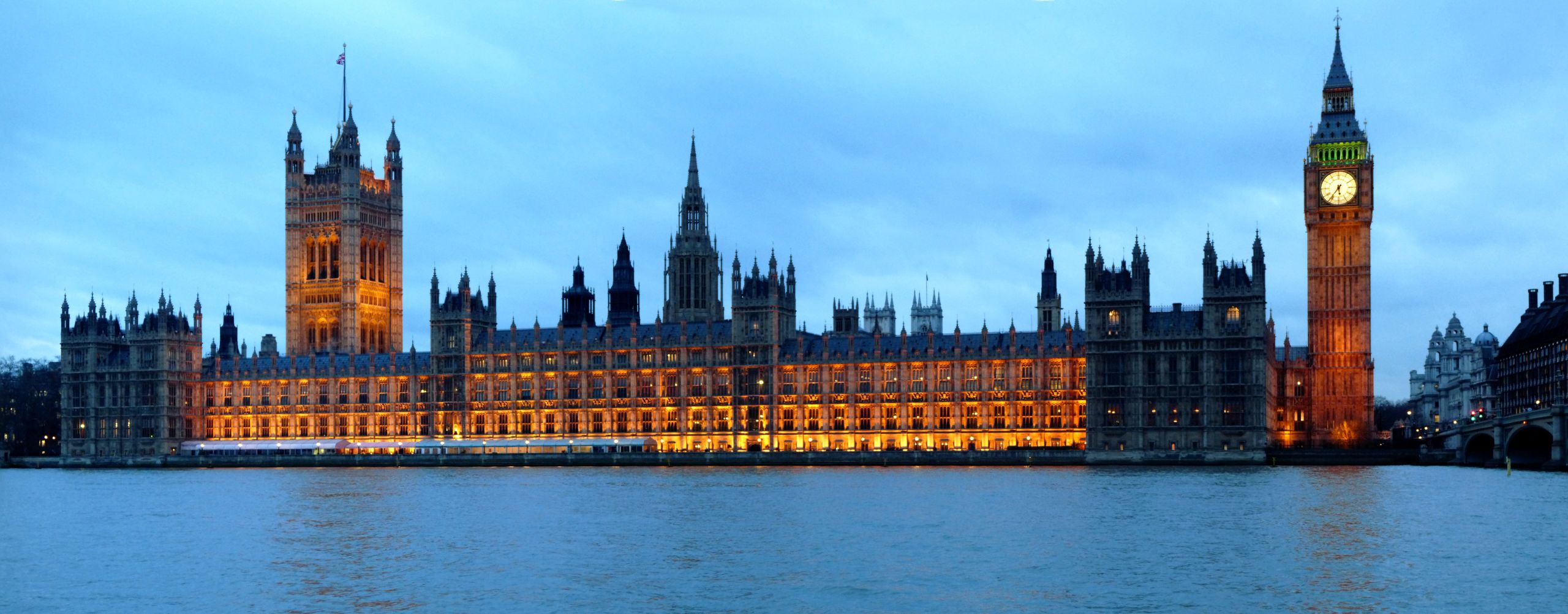
"I am very much in favour of openness and transparency wherever possible."
"Government transparency is crucial to public trust and cooperation - leaks can undermine this."
"Information must be presented clearly and promptly to the public rather than through the media where it may not be clear what the policy is."
"The Coronavirus pandemic has highlighted the importance of government comms. The public need to receive clear information directly from the government rather than through leaks to the press."
"This happening again out of nowhere just as my business started to get back on track again set me back."
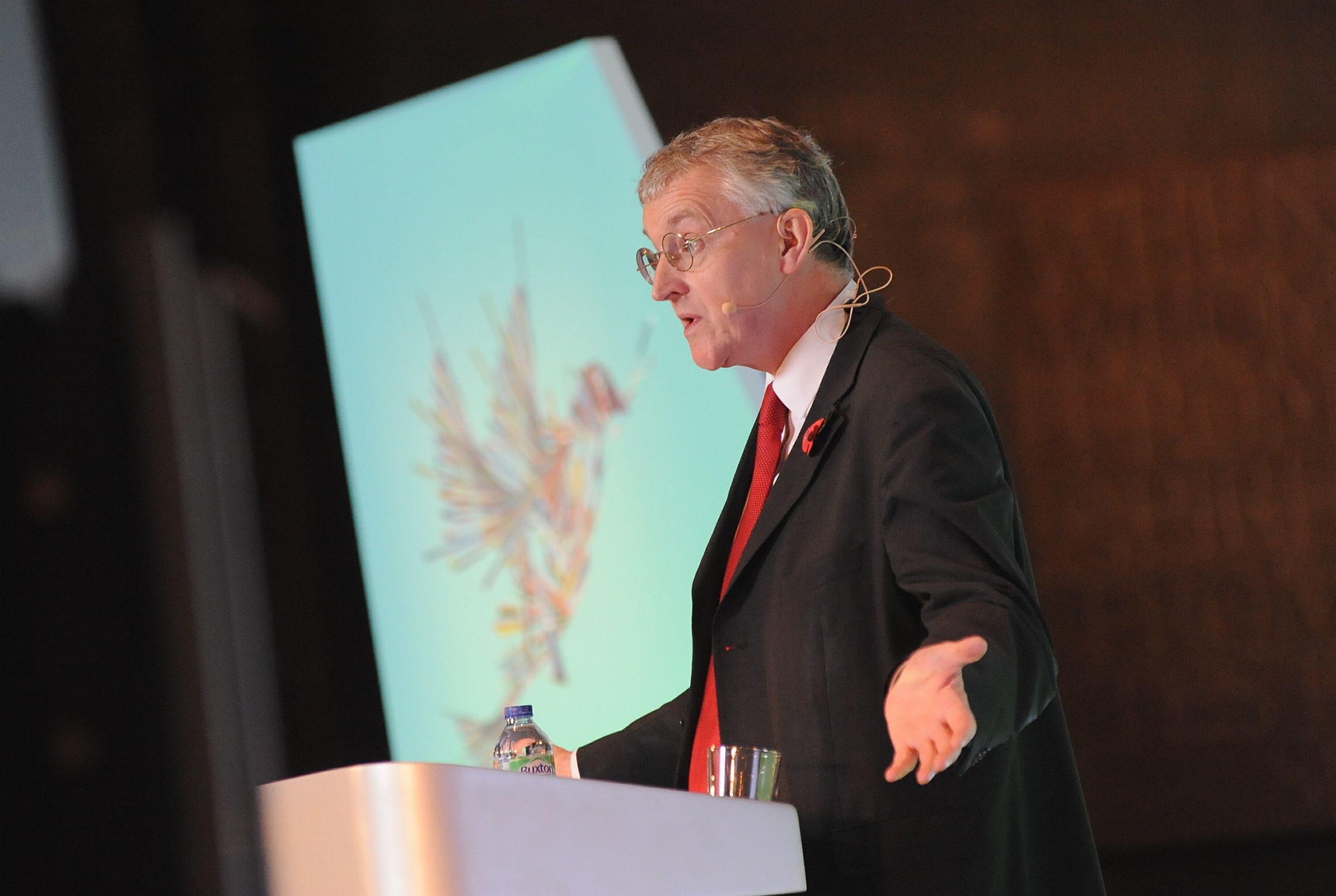
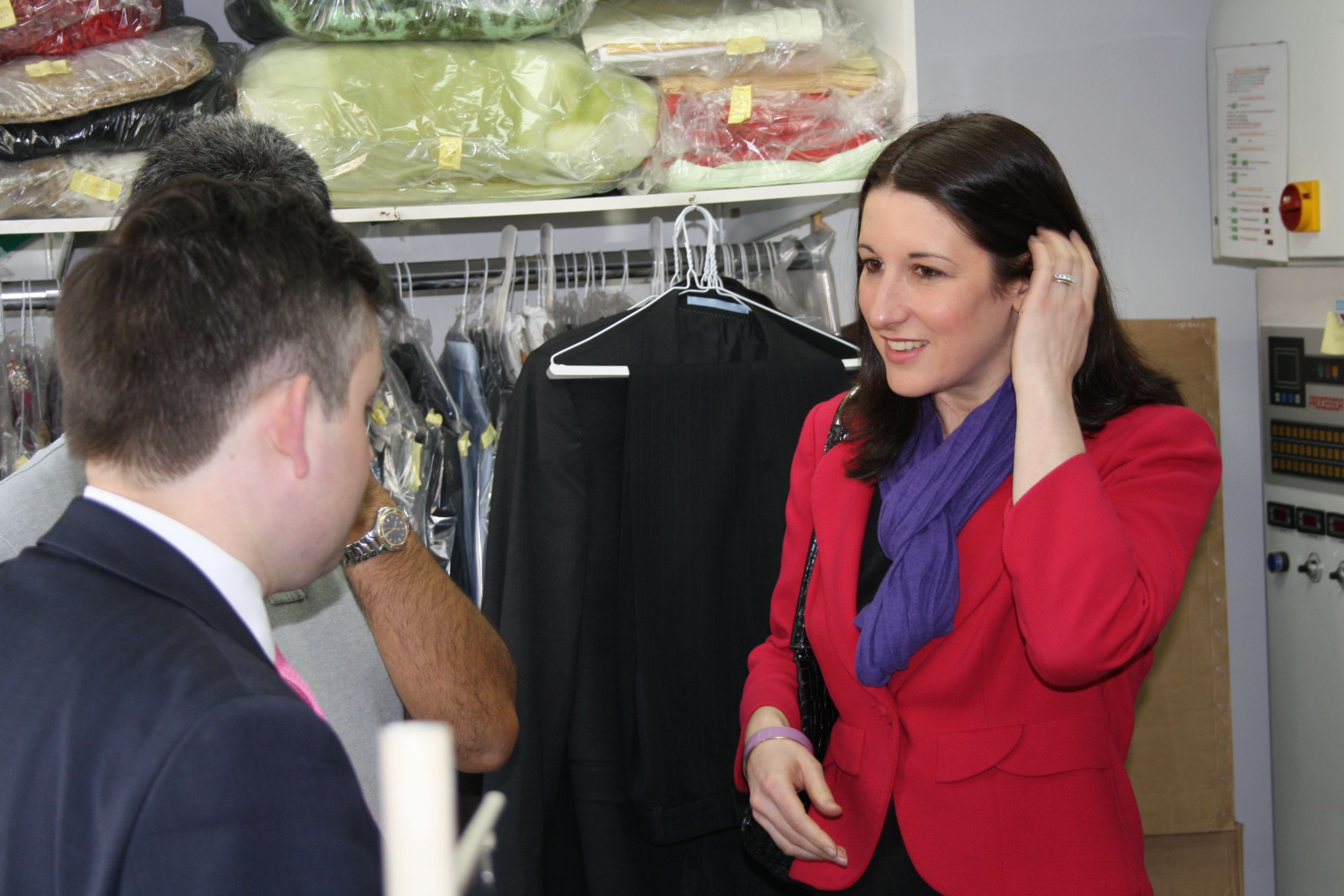
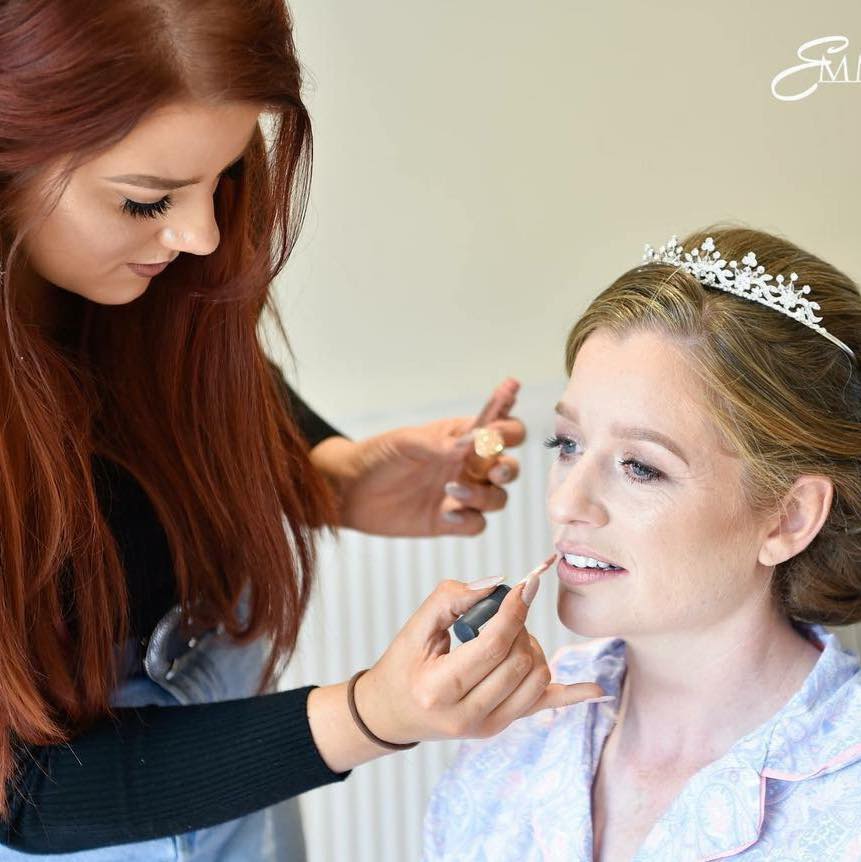
LOCKDOWN
2.0
Leak to Press
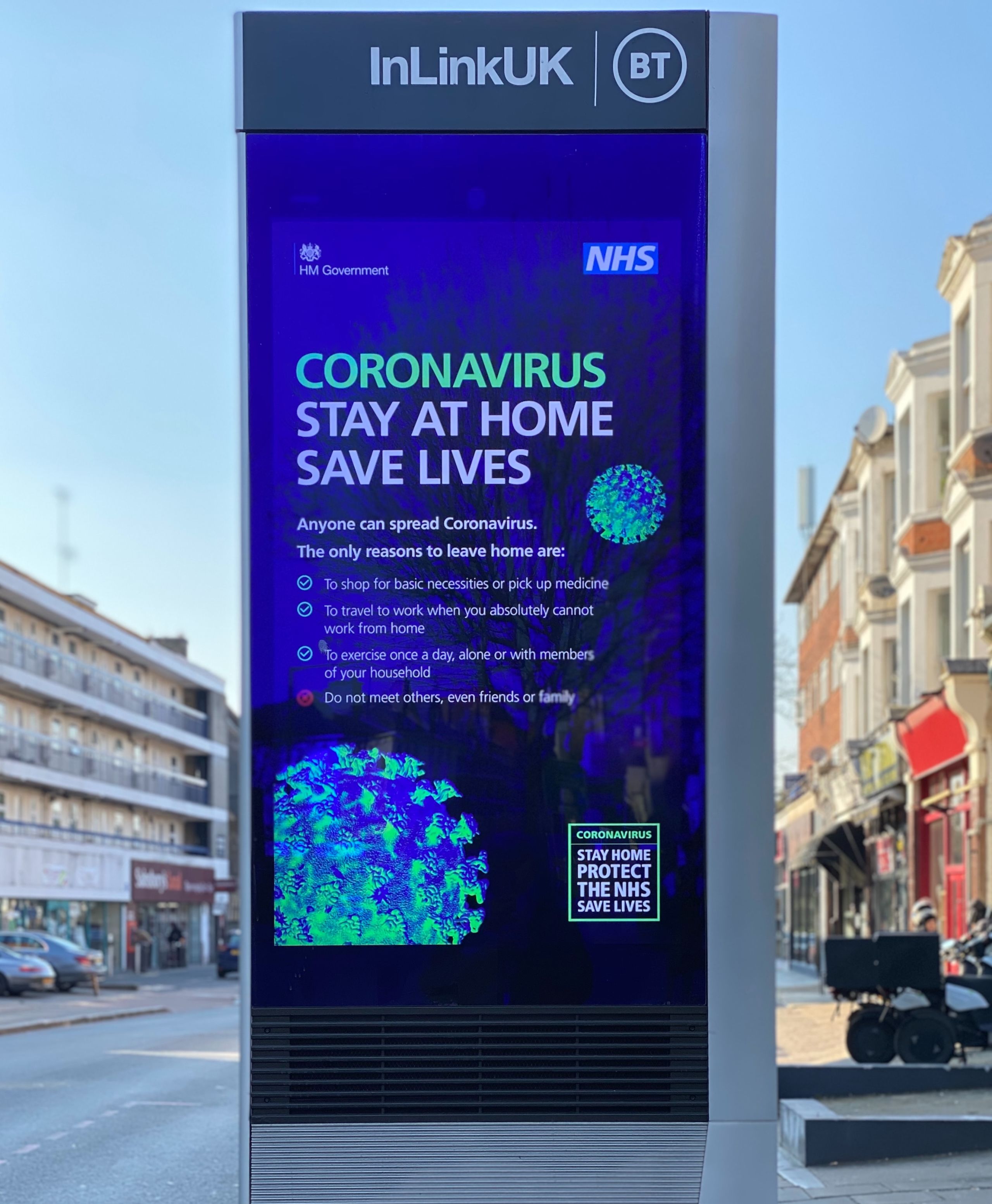
The premature announcement of Lockdown 2 in England.
On the 31st October 2020, news media outlets released information to the public stating that the country would be going into a nationwide lockdown, once again. This premature leak left many business owners worried about the future of their companies, their staff 's positions and how they would survive yet another lockdown.
"I've had the worst time ever with my mental health anyway due to the pandemic, but this happening again out of nowhere just as my business started to get back on track again, set me back!"
A freelance Makeup artist, Sophie Meeson spoke with me about how the sudden announcement impacted her. With the summer months and November/December being the busiest times for an MUA, with weddings and Christmas functions, they have severely suffered financially. "The amount i work in Nov-Dec allows me to earn enough for Christmas but also stabilise me financially to cover for the quieter months of Jan/Feb, so at this rate I will still be struggling!"
How are the government handling this?
The Prime minister, Boris Johnson insisted that the leak "was not a No.10 briefing and indeed we have launched an inquiry to catch the culprit." The mail reported that senior cabinet ministers have been interviewed or had their phones checked as part of the investigation. Senior ministers were among those to discuss new coronavirus data, with some details appearing in the media that night and Johnson made an official announcement the next day. With rumours that Johnson also sent security experts to the homes of the cabinet minsters to check their mobile phones, it is understood that this includes Michael Gove and Matt Hancock.
Many will hold the opinion of the government being to blame for a second lockdown, and that the sudden announcement didn't come as a shock, after the eat out to help out scheme raised infections by 17% and the daily figures increased. Places such as Vietnam offer hotel rooms and care if isolating at home would be difficult, Taiwan, covid free for 200 days, anyone infected s visited daily with food parcels, medicines and psychological help. In this country, people receive £95.85 a week sick pay, if earning under £120 a week, you aren't entitled to sick pay and if you think to claim may be better, you'll be waiting five weeks for a payment. It begs the question if people were given the support and help they needed, would England still be in this position?
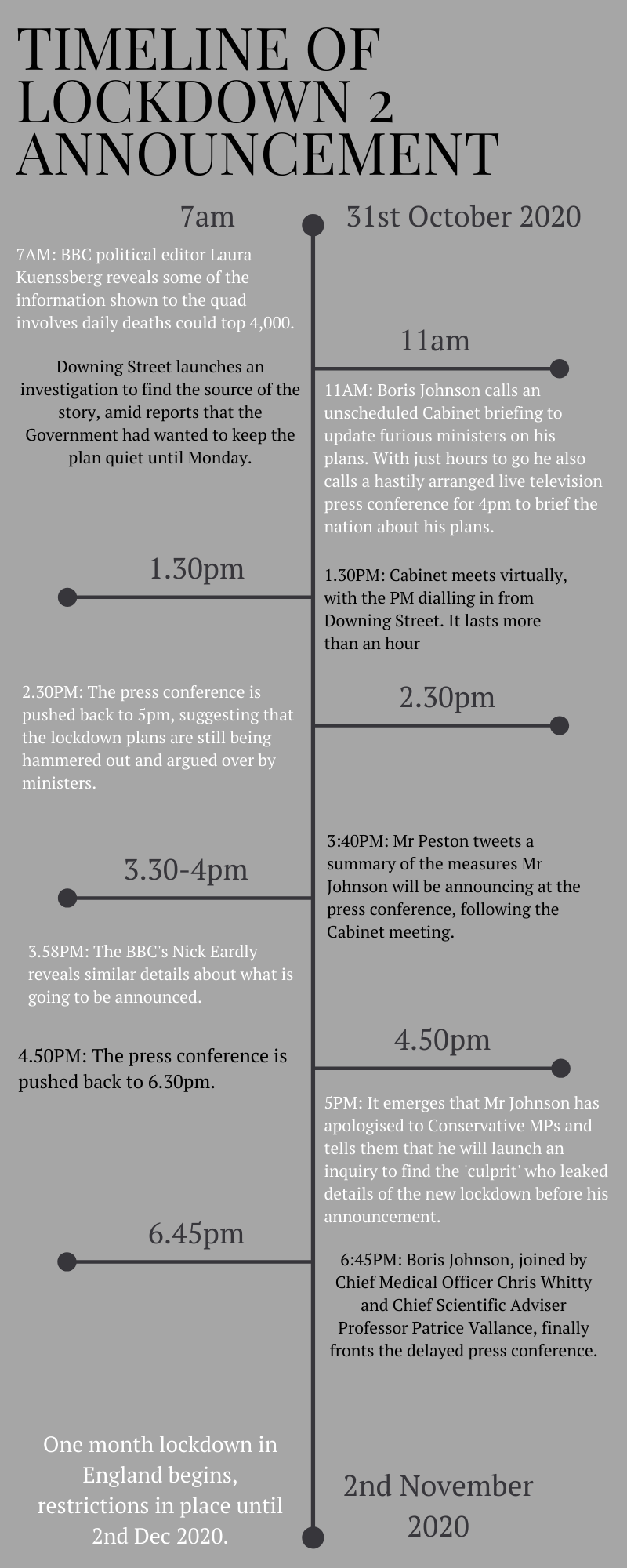
Famous Leak Stories & Inquiries
- Whitehall Inquiry 2016.An inquiry was launched into how a list of David Cameron's resignation honours was leaked to the press. Officials questioned advisers and civil servants who had access to the documents.
- In 2016 the British government launched an inquiry into how a secret memo calling for a ban on leak t o the press, was in fact leaked to the press. Theresa May had ordered a crackdown on secrecy in a memo dated November 28th and marked "Official - Sensitive" the Cabinet Officer, told senior staff of a "spate of leaks and unauthorized briefings" that had happened in the media.
- 2019, Defence Secretary Gavin Williamson sacked after an inquiry into a leak from a top-level National Security Council meeting. Downing street said PM had "lost confidence in his ability to serve" and Penny Mordaunt took over his role. This inquiry followed reports that a plan was in talks to allow Huawei limited access to help build the UK's new 5G network. Theresa May alleged she had information - "compelling evidence" that he was responsible for the unauthorised disclosure.
- 2020, Investigation into a Leaked Labour document which made explosive allegations about the party's handling of anti-Semitism claims. The inquiry looked into the leaking of the 860 page report, the report claimed Jeremy Corbyn among other Labour staff hindered efforts to tackle the issue within the party.
- 2020, Premature release of information relating to coronavirus and a second lockdown. Matt Hancock and Michael Gove phones searched in the hunt to 'find the culprit.'